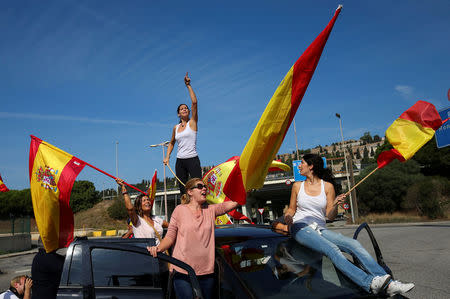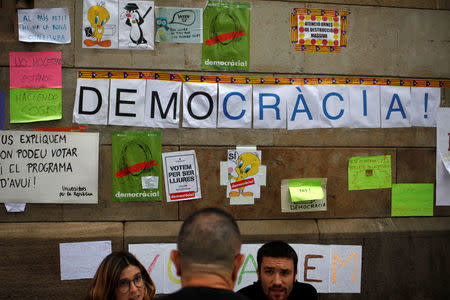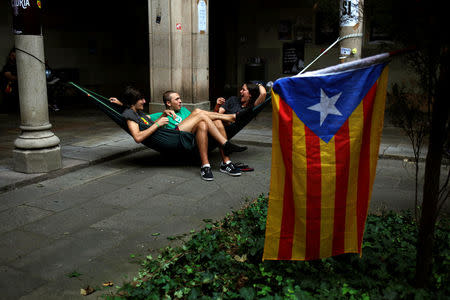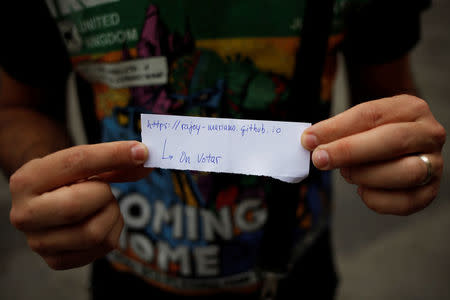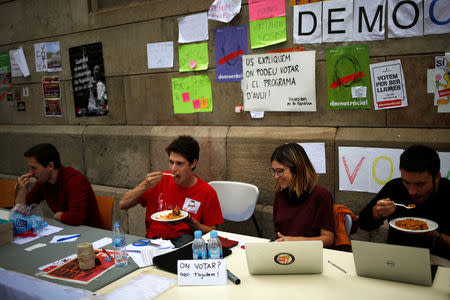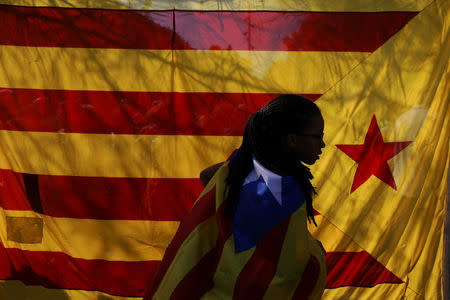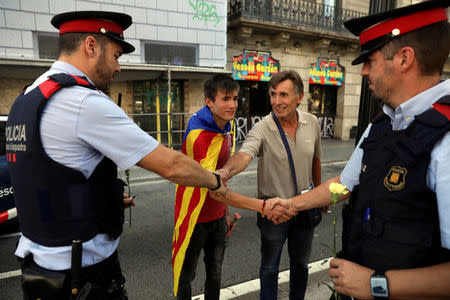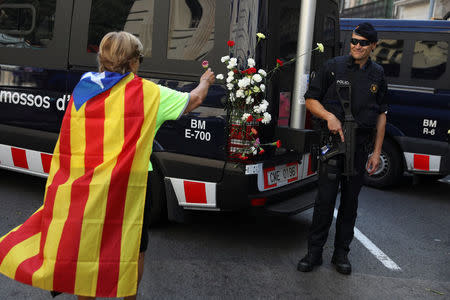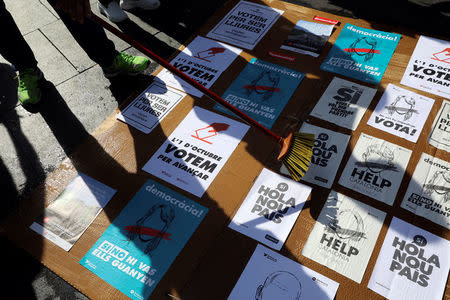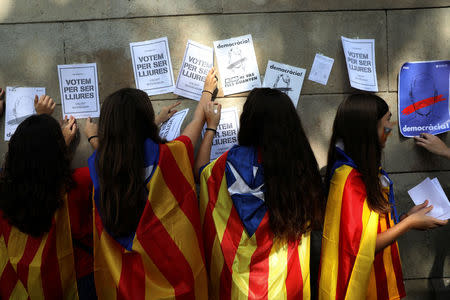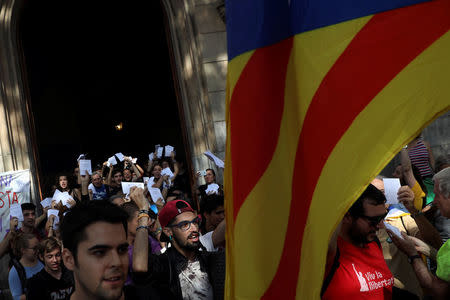Spain calls time on 'discredited' Catalan referendum
By Julien Toyer and Sam Edwards MADRID/BARCELONA (Reuters) - Spanish authorities have done enough to prevent any meaningful independence referendum in Catalonia, two senior government officials said on Monday, though they might let a mock secession "party" take place. Facing one of its biggest political crises since the return of democracy more than four decades ago, the government in Madrid has declared the Oct. 1 referendum unconstitutional and taken police and court action to block it. "There may be a party on Sunday at which, on squares and in streets, some voting stalls may be installed and a mock vote may take place," one of the officials told Reuters on condition of anonymity. "But it will not be a referendum," he added, describing the process as "discredited". The government has in recent weeks scaled up efforts to prevent the ballot by exerting more control over the use of public funds there, arresting regional officials and seizing election leaflets. It has also threatened fines against bureaucrats working on the referendum, including the region's election commission, which was dissolved last week. Those actions have sparked mass demonstrations, and Catalan leaders remain determined to hold the vote, saying the regional assembly in Barcelona would declare independence within 48 hours of a "yes". A 'yes' vote is likely, given that most of the 40 percent of Catalans who polls show support independence are expected to cast ballots while most of those against it are not. But the unrelenting opposition from Madrid means any such result would go all but unrecognised as a valid expression of the will of the wealthy region's 5.5 million voters. The officials said Catalonia lacked a proper election commission, ballots boxes, ballot papers, a transparent census and election material. "Not even Venezuela or North Korea will recognise it. And if they do, I am not sure it would help the independence campaign a lot," the first official said. A previous referendum on independence, held in November 2014 and also declared illegal by Madrid, saw a majority call for separation from Spain but was dismissed as non-representative as many in favour of staying boycotted it. The 2014 vote, when 2.23 million cast ballots, led to a snap election that returned a pro-independence coalition which relied on ten members of the far-left CUP to hold a parliamentary majority. Many observers believe the most likely outcome of the current independence campaign will be another snap election, paving the way for talks between central and local government including a potential constitutional reform to better accommodate Catalonia within Spain. (Reporting by Julien Toyer and Sam Edwards; Editing by Angus Berwick and John Stonestreet)

 Yahoo News
Yahoo News 